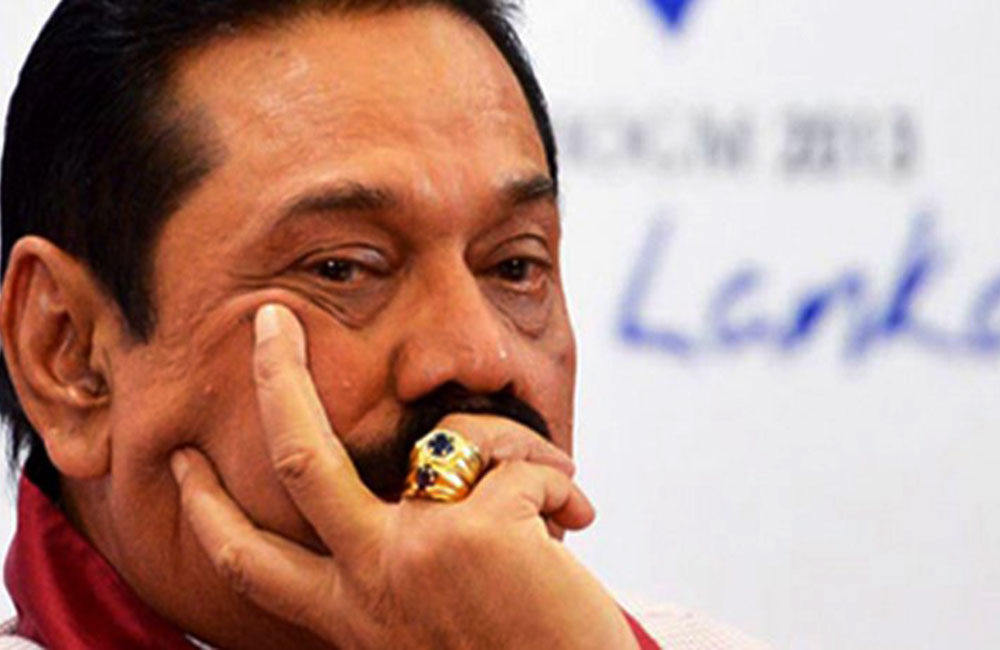The New York Times sounded alarm Tuesday over an "intimidation campaign" being waged against two Sri Lankan reporters who assisted the newspaper's investigation into alleged corruption involving former president Mahinda Rajapakse.
The pair have been subjected to intense personal abuse on social media and public criticism by parliamentarians loyal to Rajapakse since the report was published late last month.
"It is unacceptable for journalists to be intimidated this way. This action appears intended to silence critics and curb press freedoms, and ultimately deprive Sri Lankans of information in the public interest," the New York Times said in a statement Tuesday.
"The Times expects the Sri Lankan authorities to ensure the safety of journalists working for our -- or any -- news organisation."
Rajapakse's son Namal, a local legislator, said "at no time" did he or his father intimidate the journalists.
"Just like the press has a right to criticise politicians, don't we also have the right to 'publicly criticise' reporting we believe to be faulty?" he posted on Twitter.
The NYT investigation alleges Rajapakse's campaign took millions in bribes for his failed election bid from a Chinese state-owned company which built a controversial port on the island.
The report also accused Rajapakse's regime of taking huge loans for the port at massive interest rates.
Sri Lanka has been unable to pay the debt and agreed last year to give China a 70 percent stake in the strategic port in the Indian Ocean.
In a statement at the weekend Rajapakse -- a former strongman making a political comeback in Sri Lanka -- denied receiving campaign funding from the Chinese and accused the New York Times of a smear campaign against him.
The Times report says Rajapakse and his aides did not respond to multiple requests for comment.
he Chinese embassy in Colombo also denied the report and said it was "full of political prejudice and completely inconsistent with the fact".
There has been no official comment from the Sri Lankan government.
The revelations have dominated headlines in Sri Lanka and enraged Rajapakse supporters, who have accused the duo of pro-government bias and acting in the interest of foreigners.
Rajapakse and several members of his family are currently under investigation for large-scale financial fraud and murder. All deny any wrongdoing and in turn accuse the new government of a political vendetta.
Rajapakse was defeated in 2015 by President Maithripala Sirisena after a decade of iron-fisted rule in which he oversaw the bloody end to Sri Lanka's civil war and quashed dissidents and curbed media freedoms.
Seventeen journalists and media employees were murdered during his time in office.
Sirisena was elected promising to restore press freedom and democratic norms.
Sri Lanka is ranked 131 of 180 nations on Reporters Without Borders world press freedom index, an improvement of 10 places from the year before.

Leave your comments
Login to post a comment
Post comment as a guest